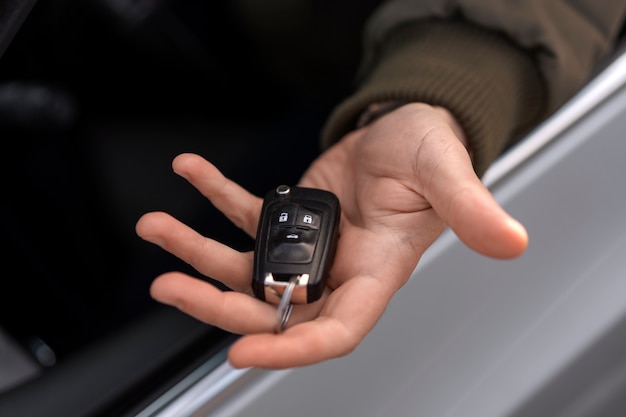Car keys—those small yet pivotal tools—often get taken for granted. We twist them into locks, slide them into ignition slots, and pocket them with hardly a second thought.
However, just like the cars they command, keys can wear out, displaying signs of fatigue that might go unnoticed until it’s too late. Imagine being late for an appointment, only to discover that your once-reliable key refuses to turn.
Understanding how to detect the subtle signs of wear and tear in your keys can save you from unseen headaches and help maintain the seamless relationship you have with your vehicle. In this article, we’ll delve into the telltale signs of a key on the brink of failure and offer insights on proactive measures to ensure you’re never left stranded.
The Anatomy of a Car Key: What Makes It Wear Out?
Car keys, those small yet vital instruments of modern convenience, are comprised of several components that contribute to their gradual degradation over time. The outer casing, often made of plastic or metal, can suffer from wear due to constant handling and exposure to the elements.
The intricate metal blade, designed to fit precisely into your vehicle’s ignition, may develop scratches or even tiny fractures as it engages with locks repeatedly, leading to difficulty in turning or inserting the key. Moreover, many keys now house electronic chips that communicate with the cars ignition system, and these can be susceptible to issues from battery depletion or electronic interference.
Additionally, the everyday hustle—keys dropped, misplaced, or exposed to moisture—further accelerates their decline, leading to that all-too-familiar moment of panic when you realize your once-reliable key has become a troublesome obstacle to your journey. Understanding these elements can help you spot the signs of impending failure before you find yourself stranded without a way to start your engine.
Factors That Contribute to Car Key Wear
Car key wear can result from a myriad of factors, each playing a pivotal role in the longevity of this small yet essential tool. First and foremost, the frequency of use cannot be overlooked; keys that are utilized multiple times a day are far more prone to signs of wear than those that sit idle.
Additionally, environmental conditions contribute significantly—exposure to moisture, dirt, or extreme temperatures can exacerbate wear and tear. The material composition of the key itself also matters; for instance, metal keys are generally sturdier than their plastic counterparts but may still suffer from the stress of repeated insertion and twisting in locks.
Furthermore, the way in which a key is stored can affect its lifespan; keys jangling together in a pocket or bag can scratch and chip one another, hastening degradation. Ultimately, each of these elements intertwines, leading to a gradual decline in the functionality of what many take for granted until its too late.
How to Extend the Life of Your Car Keys
To extend the life of your car keys, start by treating them with care—avoid tossing them into bags or pockets where they can jostle against other items. Cleaning your keys regularly can make a surprising difference; simply wipe them down with a soft cloth to remove dirt or debris that can accumulate in crevices.
Its also wise to avoid exposing your keys to extreme temperatures or moisture, as both can damage electronic components or the keys physical structure. Additionally, if you have a key fob, consider replacing its battery proactively, rather than waiting for it to die, to prevent unnecessary wear on the key itself.
Lastly, storing spare keys in a safe, designated spot can help you avoid the wear and tear from frequent use, keeping your primary key in optimal condition for longer. In short, a few mindful habits can significantly prolong the life of your keys, ensuring they serve you well for years to come.
Conclusion
In conclusion, understanding the signs of a worn-out car key is crucial for preventing inconvenient and potentially costly situations down the road. By being attentive to the keys performance and recognizing indicators such as wear on the key blade, difficulty in turning the ignition, or inconsistent response from your car, you can take proactive measures to address these issues.
Regular inspections, prompt actions, and seeking the expertise of professionals like Mr Key can ensure that your car key remains in optimal condition, allowing you to avoid unexpected breakdowns and keep your vehicle operating smoothly. Remember, a little awareness goes a long way in maintaining the integrity of your car keys and, by extension, your vehicle’s overall functionality.




